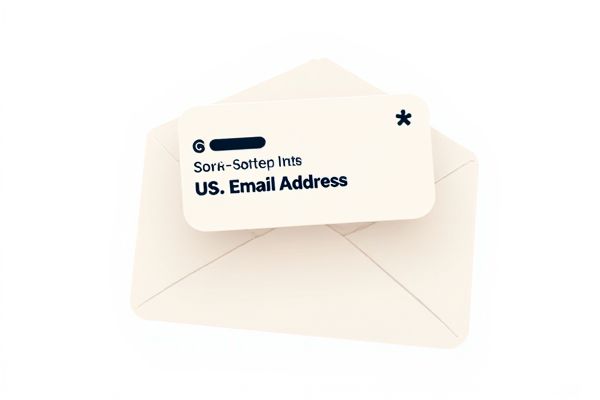
Generate unlimited random US email addresses instantly with our easy-to-use online tool, designed for quick and reliable access. Perfect for testing, sign-ups, or privacy protection, each email is unique and ready to use without any registration. Experience seamless functionality and enhance your workflow with our efficient random US email address generator.
Online tool for random us email address generator
We have prepared several sample random US email addresses for you to use and randomize. You can also upload your own list for customization. With just one click, the tool generates a randomized list and provides a single email address ready for use.Data Source
Single Result
Multiple Results
Introduction to Random US Email Address Generators
Random US email address generators create unique, temporary email addresses using algorithms that combine common US-based names, domains, and formats. These tools help protect privacy, reduce spam, and facilitate anonymous communication by providing instantly accessible, disposable addresses. Popular generators often include features like domain selection, syntax customization, and integration with email verification services.
Key Features of US Email Address Generators
US email address generators provide users with instantly created, authentic-looking email addresses that enhance privacy and enable easy account creation without personal information. Key features include domain customization, generating valid and formatted email addresses compliant with US standards, and options for disposable or permanent usage tailored to various online activities. These tools support bulk generation, integration with APIs, and spam filtering to streamline user experience and security during digital registrations.
Benefits of Using Random US Email Addresses
Random US email address generators enhance online privacy by masking real identity and reducing the risk of data breaches. They help users avoid spam and targeted advertisements by providing disposable, temporary contacts for sign-ups and verifications. This tool also streamlines account management for multiple services, improving security with unique, anonymous email addresses.
Common Use Cases for Fake US Email Addresses
Fake US email addresses generated randomly are frequently used for testing website registrations, protecting personal information during online sign-ups, and bypassing location-based content restrictions. Developers utilize these email addresses to simulate user accounts during app development, ensuring functionality without exposing real data. Marketers also employ them to verify email campaigns' deliverability and engagement without compromising customer privacy.
Security and Privacy Considerations
Random US email address generators offer a convenient way to create temporary inboxes for online sign-ups, minimizing exposure of your primary email to spam and phishing attacks. Ensuring the generator uses encrypted connections (HTTPS) and does not store or share generated addresses improves user privacy and security. Users should verify the service's data retention policies to prevent unauthorized access or misuse of their temporary email information.
Popular Online Random US Email Generators
Popular online random US email generators like Temp Mail, Guerrilla Mail, and 10 Minute Mail provide users with quick, disposable email addresses for privacy protection and spam avoidance. These generators offer easy-to-use interfaces and instant access to temporary email addresses ending in US-based domains, enhancing usability for registration on US websites. Their widespread adoption supports anonymous communication and secure online identity management in diverse digital interactions.
Factors to Consider When Choosing an Email Generator
A reliable US email address generator should prioritize secure domain options and support multiple formats to ensure authenticity and usability for various platforms. It must offer spam protection features and maintain user anonymity while providing quick, temporary, or permanent addresses. Scalability and integration capabilities with other tools are essential factors for seamless workflow and email management.
Legal Implications of Using Generated Email Addresses
Using a random US email address generator can raise significant legal implications related to privacy, data protection, and identity fraud. Misusing generated email addresses for fraudulent activities or spam violates laws such as the CAN-SPAM Act and the Computer Fraud and Abuse Act. Organizations must ensure compliance with regulations like GDPR and CCPA when handling or distributing these addresses to avoid legal penalties.
Tips for Verifying the Legitimacy of US Email Addresses
Verify the legitimacy of US email addresses by checking the domain for authenticity, ensuring it matches the expected organization or service provider. Use email verification tools to detect invalid, temporary, or spoofed addresses commonly generated by random US email address generators. Cross-reference the email with known databases of fraudulent addresses to minimize risks associated with scams and phishing attempts.
Frequently Asked Questions about Random US Email Generators
Random US email address generators create unique, temporary American email addresses to protect privacy and avoid spam. Users often ask about the security, expiration time, and usage limits of these generated emails. Most services guarantee anonymity, allow multiple simultaneous addresses, and auto-delete emails within a configurable time frame ranging from 10 minutes to several days.
 azrandom.com
azrandom.com